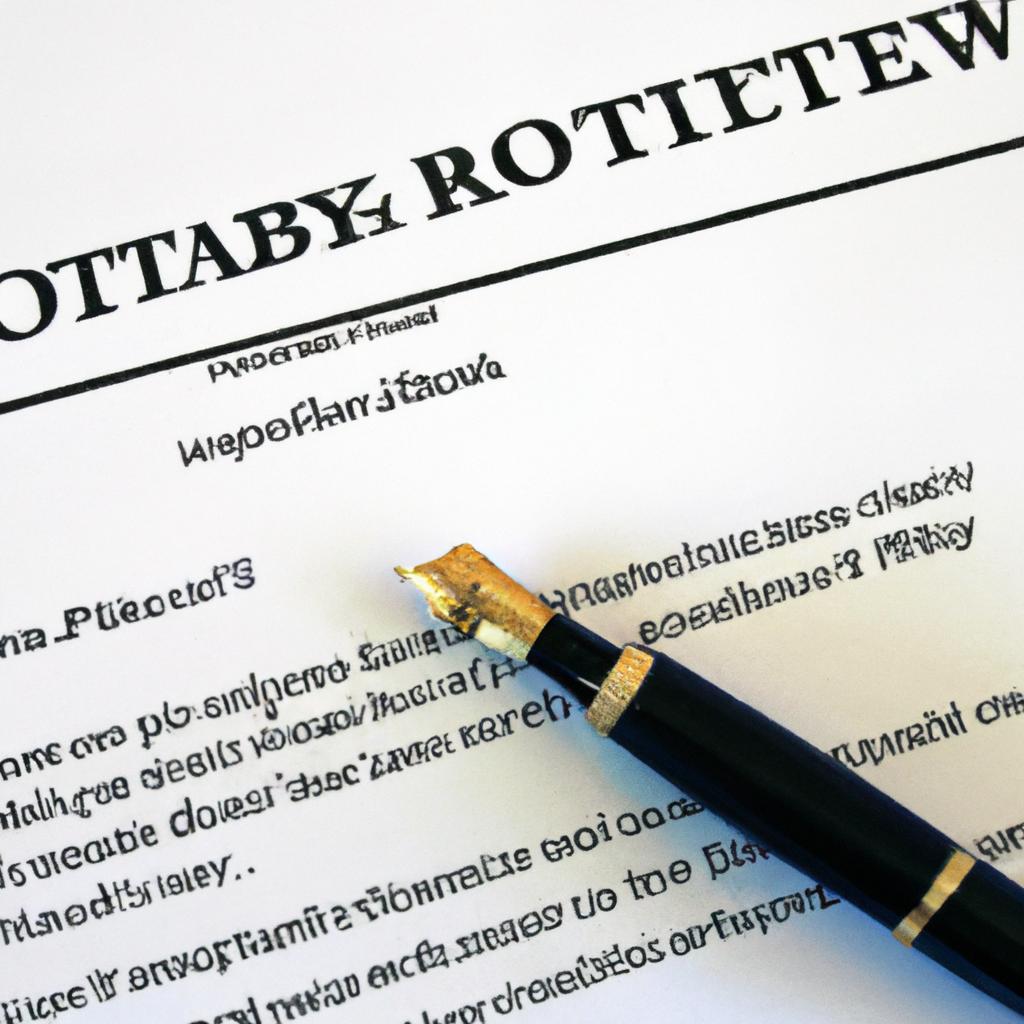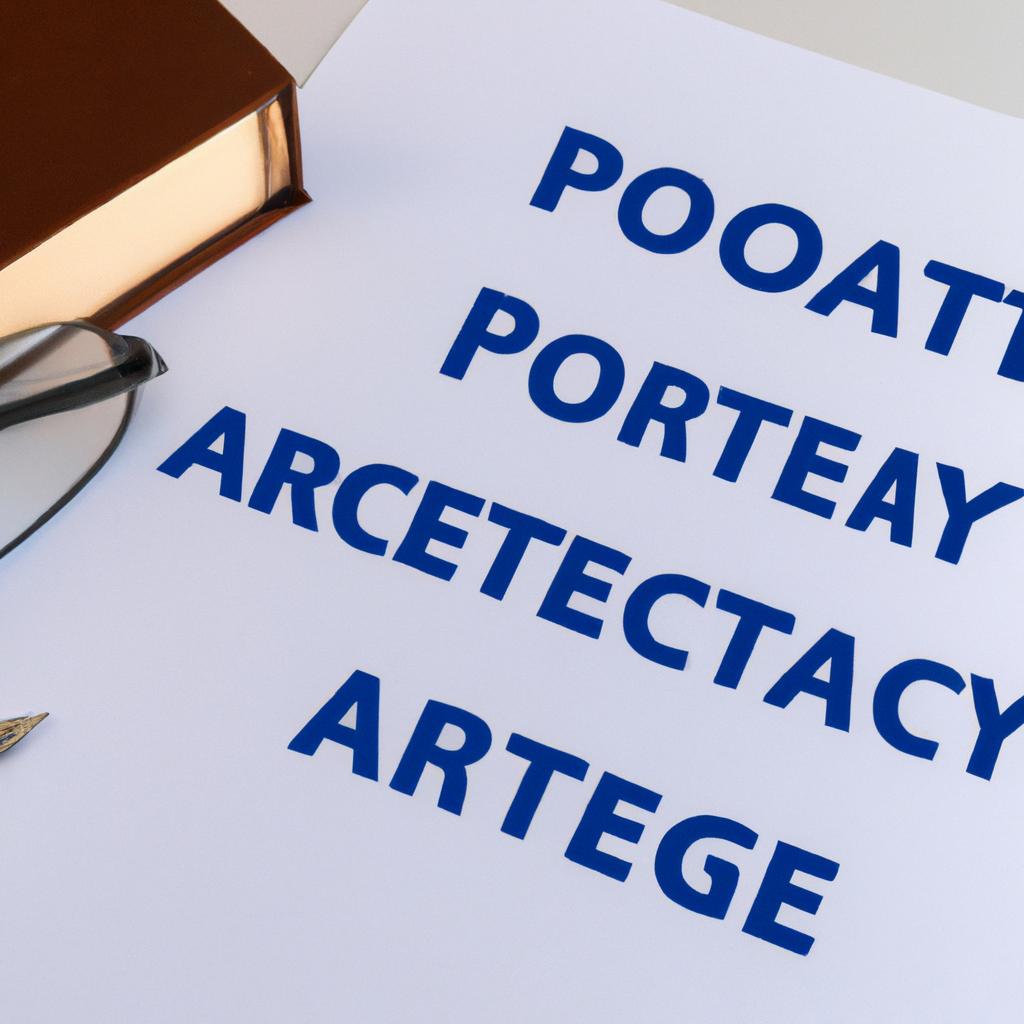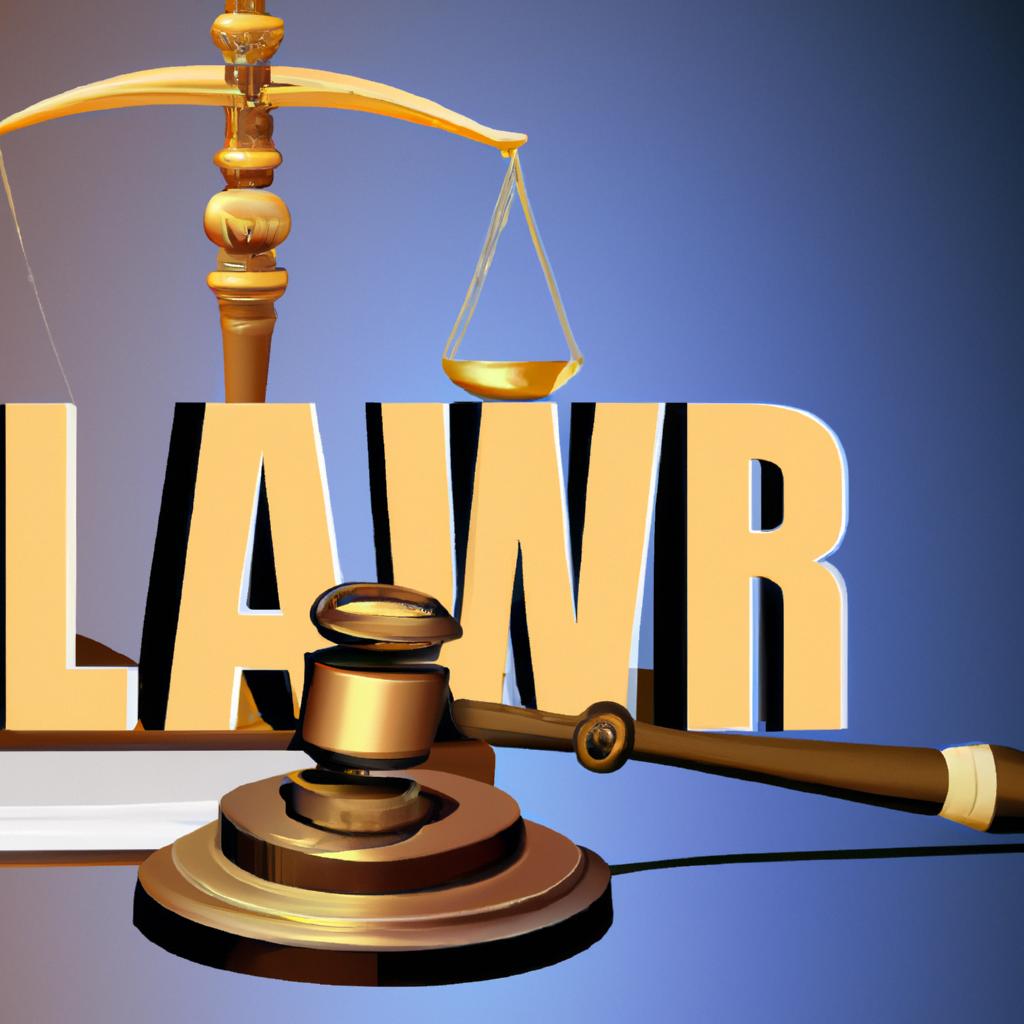As a reputable law firm specializing in estate planning and probate matters, Morgan Legal Group prides itself on guiding clients through the intricate legal process of administering an estate. One crucial document that often arises in the probate process is the letter of authority. In this article, we will delve into the significance of the probate letter of authority, its purpose, and how it plays a vital role in overseeing the distribution of assets in accordance with a deceased individual’s wishes. Stay tuned as we unravel the complexities surrounding this critical legal instrument.
Understanding the Role and Importance of a Probate Letter of Authority
When a loved one passes away, navigating the legal process of their estate can be complex and overwhelming. One key document that plays a crucial role in this process is the Probate Letter of Authority. This document is issued by the court and grants the executor or administrator of the estate the legal authority to act on behalf of the deceased individual.
Having a Probate Letter of Authority is essential for a number of reasons. Firstly, it provides official recognition from the court that the named individual has the legal right to manage the affairs of the deceased. This includes accessing bank accounts, distributing assets, and settling debts. Additionally, the Probate Letter of Authority ensures that all actions taken by the executor or administrator are legally binding and protected under the law.

Key Steps in Obtaining a Probate Letter of Authority
When seeking a probate letter of authority, there are key steps that must be followed to ensure a smooth and efficient process. One of the first steps is to gather all necessary documents, such as the original will, death certificate, and any relevant financial statements. These documents will be crucial in proving your authority as the executor of the estate.
Next, it is important to file a petition with the court to be appointed as the executor of the estate. This petition will outline your relationship to the deceased, your qualifications to serve as executor, and the assets and liabilities of the estate. Once the petition is approved, the court will issue the probate letter of authority, granting you the legal authority to act on behalf of the estate. With the letter of authority in hand, you can begin the process of inventorying assets, paying debts, and distributing assets to beneficiaries.

How to Navigate Potential Challenges and Disputes Surrounding a Probate Letter of Authority
When navigating potential challenges and disputes surrounding a probate letter of authority, it is essential to approach the situation with patience, diligence, and a clear understanding of the legal processes involved. One of the most common challenges that may arise is objections from beneficiaries or creditors. In such cases, it is crucial to carefully review the terms of the probate letter of authority and any relevant estate planning documents to ensure compliance with the deceased individual’s wishes.
Additionally, communication with all parties involved is key to resolving disputes and ensuring a smooth probate process. By maintaining open lines of communication and seeking mediation when necessary, potential conflicts can often be resolved amicably. It is also advisable to consult with an experienced probate attorney who can provide guidance and representation throughout the process, helping to protect your legal rights and interests.

Proactive Strategies for Maximizing the Efficiency of a Probate Letter of Authority
When it comes to maximizing the efficiency of a probate letter of authority, it is crucial to adopt proactive strategies that will streamline the process and minimize any potential delays or complications. One key strategy is to ensure that all required documentation is in order and submitted promptly. This includes gathering all necessary information, such as the deceased’s will, death certificate, and any other relevant legal documents.
Another important strategy is to maintain clear communication with all parties involved in the probate process. This includes regularly updating beneficiaries, heirs, and other interested parties on the status of the probate letter of authority and addressing any questions or concerns promptly. By proactively managing the probate process and staying organized, you can help ensure a smooth and efficient administration of the estate.
Q&A
Q: What is a probate letter of authority?
A: A probate letter of authority is a legal document that authorizes someone to act on behalf of a deceased individual’s estate.
Q: What is the purpose of a probate letter of authority?
A: The purpose of a probate letter of authority is to grant the appointed individual the power to make financial decisions, handle assets, pay debts, distribute property, and perform other necessary duties related to the estate of the deceased.
Q: Who can obtain a probate letter of authority?
A: Typically, a probate letter of authority is obtained by the executor or administrator of the deceased individual’s estate. This person is responsible for ensuring that the deceased’s assets are distributed according to their wishes and that any outstanding debts are paid.
Q: How does one obtain a probate letter of authority?
A: To obtain a probate letter of authority, one must file a petition with the probate court and go through the probate process. This involves proving the validity of the deceased individual’s will, if there is one, and obtaining the necessary legal documents to administer the estate.
Q: What happens if someone acts without a probate letter of authority?
A: If someone acts on behalf of a deceased individual’s estate without the proper authority, they could face legal consequences, including being held personally liable for any debts or improper distribution of assets. It is essential to follow the proper legal procedures to avoid these issues.
The Way Forward
Navigating the legal waters of probate can be daunting, but with a probate letter of authority in hand, you can confidently steer your ship through the murky depths. This invaluable document gives you the power to carry out the wishes of the deceased and ensure their estate is properly managed and distributed. So, whether you’re an executor, administrator, or beneficiary, remember that a probate letter of authority is your key to unlocking a smooth and efficient probate process. Here’s to honoring the past while paving the way for the future.
 Understanding the Importance of a Probate Letter of Authority
Understanding the Importance of a Probate Letter of Authority
When a loved one passes away, their estate and assets likely go through a legal process known as probate. The purpose of this process is to ensure that the deceased’s assets are distributed among their beneficiaries according to their wishes.
However, before anyone can begin this process and handle the deceased’s affairs, they will need a crucial document known as a probate letter of authority. In this article, we will delve into the details of what a probate letter of authority is, why it’s essential, and how to obtain one.
What is a Probate Letter of Authority?
A Probate Letter of Authority is a legal document issued by a court that gives an individual or a group of people the power to handle the deceased’s estate and assets. This document is also sometimes referred to as a Letter of Testamentary or a Letter of Administration, depending on the situation.
When someone passes away, their assets and belongings become part of their estate. The probate process is designed to ensure that these assets are distributed according to the deceased’s wishes. However, this process cannot begin without a probate letter of authority.
Who Needs a Probate Letter of Authority?
If you have been named as the executor of someone’s will, it’s your responsibility to obtain a probate letter of authority. This document gives you the legal right to handle the deceased’s estate and distribute their assets according to their will.
If a loved one passes away without a will, the court will appoint a person to act as the administrator of the estate. This person will need to obtain a Letter of Administration to carry out their duties.
Why is a Probate Letter of Authority Important?
A probate letter of authority is essential for several reasons:
1. Legal Authorization
The probate process can be complex, and the distribution of assets can often lead to disputes among family members. A probate letter of authority gives you the legal authorization to handle the deceased’s estate and distribute their assets according to their wishes, without any legal challenges.
2. Protects the Executor or Administrator
By obtaining a probate letter of authority, the executor or administrator is protected in the event of any legal challenges. This document serves as proof that they are acting within their legal rights and carrying out their responsibilities.
3. Ensures Proper Distribution of Assets
Without a probate letter of authority, there is no official oversight over the distribution of assets. This document ensures that the deceased’s wishes are followed and that their assets are distributed among the beneficiaries as intended.
How to Obtain a Probate Letter of Authority?
The process of obtaining a probate letter of authority will vary depending on the state’s laws and procedures. However, the following steps are generally involved:
Step 1: File a Petition with the Court
The executor or administrator must file a petition with the probate court in the county where the deceased resided at the time of their death. This petition will include details such as the deceased’s name, date of death, and a copy of their will (if applicable).
Step 2: Notify Heirs and Beneficiaries
Once the petition is filed, the executor or administrator must notify all heirs and beneficiaries that they have filed for the probate letter of authority. This notification process can vary from state to state.
Step 3: Attend a Hearing
After the petition is filed, a hearing date will be set, and all parties must attend it. During the hearing, the court will review the petition and determine whether or not to issue the letter of authority.
Step 4: Obtain the Probate Letter of Authority
If the court approves the petition, the executor or administrator will receive a probate letter of authority, which gives them the legal right to manage and distribute the deceased’s assets.
Once the letter of authority is issued, the executor or administrator must begin the process of administering the estate and distributing the assets. This process can take several months, depending on the complexity of the estate.
In Conclusion
Obtaining a probate letter of authority is an essential step in the probate process. It gives the executor or administrator the legal right to handle the deceased’s estate and ensures the proper distribution of assets among beneficiaries. While this process may seem daunting, consulting a probate attorney can help guide you through the steps and ensure that everything is done correctly, giving you peace of mind during this difficult time.

